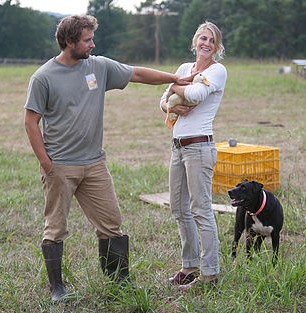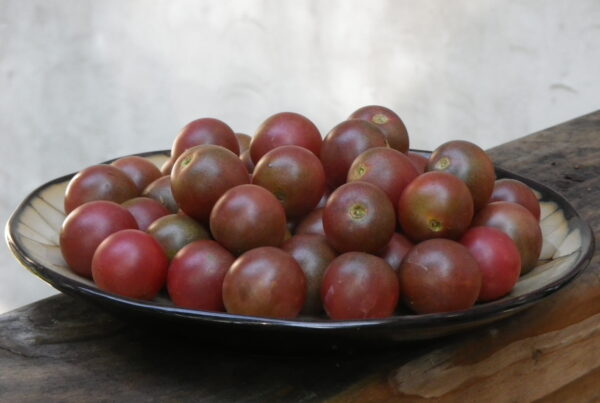By Mark Schonbeck, VABF Policy Liason
2024 (hopefully) Farm Bill
Recent developments and next steps
With the House version of the Farm Bill voted out of committee, and the Senate version still in process within the Senate Agriculture Committee, we are awaiting new developments toward a final Farm Bill, which could take place at any time, or perhaps not for a long time. Watch for special action alerts and/or updates in the next enewsletter related to the Farm Bill.
As the National Sustainable Agriculture Coalition (NSAC) outlined in this press release on the House Farm bill proposal, the House Farm Bill does not adequately support a truly sustainable and socially just food and agriculture system. Amendments to restore climate-smart guidelines on use of Inflation Reduction Act (IRA) conservation funding, restore SNAP benefit funding, and remove restrictions on the USDA Commodity Credit Corporation (CCC) capacity to respond to emerging needs in the farming sector all failed during markup, resulting in a partisan bill that is unlikely to move forward. NSAC has conducted additional analysis into the bill’s inadequate provisions for local and regional food systems and changes in the “safety net” programs – commodity and crop insurance – that further tilt the playing field in favor of large industrial commodity operations.
On May 1, Senate Agriculture Committee Chair Debbie Stabenow published a section-by-section summary of a proposed Senate Farm Bill, which addresses a substantial number of sustainable ag priorities. Ranking member John Boozman issued a high-level summary of an alternative version that aligns more closely with the House Farm Bill.
What we can do now
It is always beneficial to let your Member of Congress and our two Senators know what we like and what we find counterproductive about both House and Senate Farm Bills. Even though the Virginia delegation includes only one Ag Committee member (Rep. Abigail Spanberger, D-7th VA, who continues to be a strong champion for conservation, climate friendly agriculture, and a sustainable and just food system), it is good to educate our entire delegation on Farm Bill issues and what matters most to us as diversified organic or regenerative farmers, advocates, and concerned citizens. Remember that Farm Bills need to come to the floor of both chambers of Congress for debate, amendments, and vote. Following are two areas of focus for this month.
Focus on the Conservation Stewardship Program (CSP)
The Conservation Stewardship Program (CSP) is USDA Natural Resources Conservation Service’s (NRCS) most advanced working lands conservation program, and the agency’s best means to help farmers meet the challenges of the climate crisis and contribute to the solution through carbon sequestration and greenhouse gas (GHG) mitigation. The House Farm Bill proposes a substantial increase in CSP funding (by incorporating IRA funds into the program’s baseline) but “carves out” significant fractions of that funding for other programs that should be funded separately, and deletes guidelines that require prioritization of climte smart practices.
At this time, we need to let all Members of Congress, know how important the CSP is for helping farmers take better care of our soils, waters, wildlife, and climate stability. Even with the supplemental IRA funds, the CSP has only been able to offer contracts to 30% of applicants – farmers eager to take better care of their land and become part of the climate solution, yet unable to do so entirely on their own dime. Thus, increased CSP funding and measures to keep CSP focused on the most effective systems for climate, soil, and other resources – systems such as agroforestry, advanced grazing management, organic, and integrated soil health practices – is essential at this time. Watch the NSAC web site and blog for more information on CSP advocacy.
Focus on Organic and Sustainable Agriculture Research
While the organic food sector continues to comprise a 6% market share of the nation’s food system, USDA continues to invest no more than 2% of its research funding into organic systems. While both Senate and House Farm Bill proposals reauthorize funding for the Organic Research and Extension Initiative (OREI), neither increases it funding beyond the current $50 million, and neither establishes Congressional authorization for the equally vital and complementary Researching the Transition to Organic (or ORG) program despite calls for funding ORG at $10 – 20 million. The Senate proposal establishes a USDA cross-agency coordinator for organic research while the House bill does not.
The Farm Bill is also an opportunity to expand the legislative priorities for OREI to include climate mitigation and resilience (or climate-smart organic systems) and the research and elevation of Traditional Ecological Knowledge – with free and prior informed consent from the tribal communities that possess this knowledge.
Now is the time for organic farmers, ranchers, and service providers to let Members of Congress know how important organic research is to the economic viability of organic operations and to realizing and optimizing the many environmental, climate, and soil health benefits of the organic method.
In addition, both versions of the Farm Bill reauthorize the Sustainable Agriculture Research and Education (SARE) program but maintain the same maximum funding level – $60 million – under which it was first authorized in 1990. With ongoing inflation, that amounts, in effect, to a 50% cut! Given that SARE is a uniquely farmer-driven and highly effective program that serves organic, regenerative, and conservation farmers with new tools, practical information, and methods, a substantial increase in SARE funding is warranted.
Funding Opportunity
Mini-Grant Application Opens for Urban Agriculture in Virginia
Application Deadline August 19, 2024
The Virginia Tech Center for Food Systems and Community Transformation, Virginia State University’s (VSU) Small Farm Outreach Program, and partners are excited to announce the opening of applications for 2024-2025 mini-grants aimed at enhancing urban agriculture in Virginia. As a key component of the “Advancing Urban Agriculture and Sustainable Food Systems” Initiative, the goal of the mini-grant funding is to build the capacity of existing urban agriculture work in Virginia. This funding opportunity aligns with the USDA Farm Service Agency (FSA) to define urban agriculture broadly to include farming and growing activity in an urban area. Grants will range from $5,000 to $15,000, with a project period of up to 12 months. These funds are aimed to assist those individuals, tribal entities, organizations, and/or community-based groups already active in urban agriculture. Successful projects must fill a perceived need and also align with the aims of the “Advancing Urban Agriculture and Sustainable Food Systems in Virginia” Initiative with priority given to proposals that focus on underserved farmers in urban communities.
Please read the Request for Proposals (RFP) information page for all the details needed about the mini-grants and submission process: Virginia Urban Agriculture Mini Grant RFP Information
Key Dates:
- Application Opens: Monday, June 17, 2024
- Application Deadline: Monday, August 19, 2024, by 5:00 PM ET
- Award Notification: Tuesday, October 1, 2024
Virtual Information Session:
- Register to attend Zoom webinar on July 26, 2024, 9:00-10:00 AM ET: https://virginiatech.zoom.us/meeting/register/tZEpce2gqjkqGNX5jqg98YWKprVBs53UJnGL#/registration
Funding aims:
- Increase capacity for growing food, expanding operations, implementing climate-friendly practices, and enhancing on-farm sustainability.
- Provide technical support to underserved farmers for supplying healthy food to their local urban communities.
- Improve community capacity in urban agriculture to achieve equity goals.
- Advance current agricultural activities in Virginia’s urban areas.
Other NSAC News Stories and Blog Posts
Senate Hearing Highlights Beginning Farmer Needs
On June 4, a subcommittee of the Senate Agriculture Committee held a hearing on Pathways to Farming: Helping the Next Generation of Farmers.” One key point that emerged from the testimony is that agricultural consolidation, driven in part by commodity and crop insurance programs that favor larger established farmer over smaller, diversified, and beginning operations makes land and other resource even less affordable and accessible to new farmers. Thus, the proposed increases in commodity subsidy payments under the House Farm Bill would make it even more difficult for aspiring farmers to get off to a successful start and thereby hinder recruitment of the next generation of producers.
Save Our Small Farms Act
Also on June 4, a group of nine Representatives introduced the Save Our Small Farms Act, which would significantly improve access to farm safety net programs for small, diversified farms and historically underserved farmers and communities.
Special State conservation program
James River Buffer Program
Designs and installs riparian forest buffer at no cost to you
If your farm is located within the James River watershed and you would like to plant a forested buffer to protect water quality, provide wildlife habitat, and improve farm biodiversity, check out the James River Buffer Program. The James River Association, the Virginia Department of Forestry, and the Chesapeake Bay Foundation are working with farmers and landowners across the middle and upper James River watershed to restore or create forest buffers that improve the quality of local waterways. The program works with you to select tree species, plants the buffer, and provides maintenance for the first three years at no cost to you. Plantings can include income generating species such as sugar maple for syrup production.
Perennial plantings will play a vital role in addressing the climate crisis by enhancing resilience, sequestering carbon, and intercepting nutrients.






